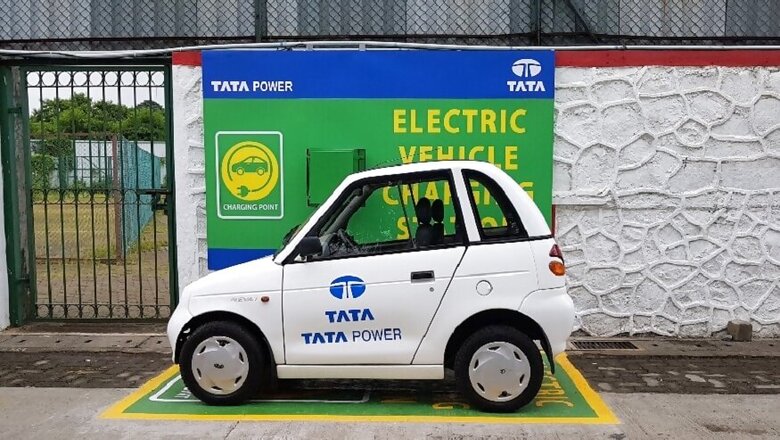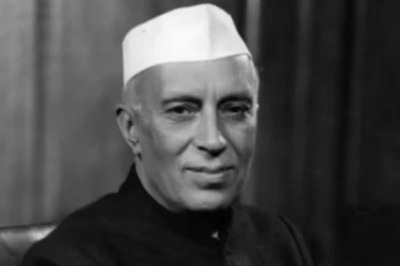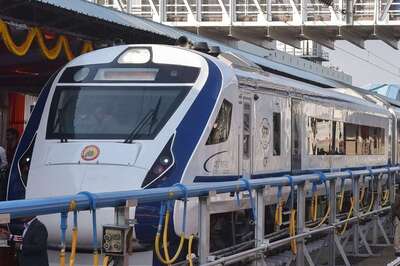
views
The Government of India is pushing the electric vehicle penetration in India by announcing a slew of tax cuts and benefits on the EVs, right from GST cut to tax free registration. However, growing EVs means India needs proper charging infrastructure, which is currently at its nascent stage. Tata Power, part of the Tata Group has now jumped the wagon to install electric vehicle charging stations across India and is the first big name to do so. We discuss with Ramesh Subramanyam, CFO & President – New Businesses, Tata Power about the Tata's presence in the EV space and future strategy.
What is Tata Power’s overall plan for developing its EV infrastructure business?
Globally, transportation is beginning to shift towards cleaner alternatives. The numbers are not big yet, but the shift is happening. Bloomberg’s New Energy Finance (NEF) annual long-term forecast states that, global electric vehicle adoption expects EV sales to surge to 11 million in 2025 and further growing to 30 million in 2030 against 1.1 million worldwide sales in 2017.
For various reasons, India is yet to catch up. Last financial year (FY18) of the 25 million new vehicles that hit the Indian roads, less than 0.3 percent were EVs (around 56,000). In the National Electric Mobility Mission Plan (NEMMP) 2020 announced in 2013, the expectation was to achieve sales of 6-7 million EVs (including hybrids) year on year starting from 2020. Under the present government from an initial plans of going all green by 2030, potential EV penetration has been scaled down to a more realistic 15% of total new vehicle sales in the next five years. Even at these levels the opportunities for those outside the automotive sector is immense.
A good network of charging stations for EVs addresses a very basic challenge -- range anxiety. Potential EV buyer worry about running out of battery and stuck between two charging stations that are not close-by. Currently new vehicle buyers (gasoline) don’t worry about running out of gas so much because there are over 61,000 petrol/diesel retail outlets in the country against around 500 EV charging stations.
So, our first strategy is to tie up with Oil Marketing Companies (OMCs) like Hindustan Petroleum Corporation Ltd, Bharat Petroleum Corporation Ltd and Indian Oil Corporation Ltd. We will be working with them to establish and expand out charging network. The understanding is to collaborate in planning, development and operation of charging infrastructure for electric vehicles (e-cars, e-rickshaws, e-bikes, e-buses, etc.), at suitable locations across India.
Since the cars, battery technologies, charging standards are still under various stages of evolution we are looking at an infrastructure which would be future ready.
How many Tata Power EV charging stations are there pan-India?
At present, we have 85 charging stations with a mix of public, semi-public and captive locations. These points are spread in 15 cities (Mumbai, Delhi, Bengaluru, Hyderabad, Indore, Vijyawada, Hosur) across 9 states.
The plan is to set up 500 charging stations across key cities in the country by 2020 and a further 100 charging stations in Maharashtra as well in the coming months. The tie up OMCs mentioned earlier will also play a big role in our expansion plans for creating a nation-wide EV charging network.
What is the investment plan?
Today there are around 500 EV charging stations spanning major metropolitan cities like Delhi, Mumbai, Bengaluru, and Kolkata. But by 2030, a city like Delhi alone could require around 300,000 fast chargers, presuming 30 percent EV penetration into an estimated car park of 10 million. Meeting this infrastructure need could call for an investment of around $1-1.5 billion. So the total investment will depend on how deeply EVs penetrate the automotive market.
What is the cost for a user to charge a car and how is the payment made?
As per the recent tariff orders by Maharashtra Electricity Regulatory Commission (MERC), the electricity tariff for EV charging will be priced at ₹6 per unit for the next 2 years. The Commission has provided for ‘Time-of-the-day’ tariff to promote charging during non-peak load hours thereby ensuring that the common power grid is not excessively burdened by over-consumption from EV charging. To enable this, an incentive of Rs 0.75 per kWh is provided for charging during low load night hours while there is additional surcharge ranging from Rs 0.50-1.00 per kWh for charging during morning and evening peak load hours.
Similarly, some other states have also announced power supply tariffs for EV charging stations. Further to these rates for power supply, Public EV charging stations are allowed to add a service charge. However, to promote greater adoption of EVs, Tata Power is presently not levying any service charge to EV owners.
Soon, Tata Power will be introducing a mobile app which can be used by EV users to locate chargers, book a charging slot, manage the charging process and finally make payments. This mobile app will accept payments through all the standard modes like debit/credit cards, digital wallets and cash.
What kind of innovations Tata Power is doing for development of charging station, which can accelerate usage of E-Vehicles?
We are working with third party like battery manufacturers, automobile companies, regulators, municipal corporations and consumers to develop an efficient EV charging ecosystem in India that is at par with global standards. Apart from a robust and growing charging infrastructure, Tata Power is also working towards ensuring 24x7 quality power supply and a Time of Day (ToD) tariff structure. A ToD tariff structure will encourage consumers to shift a part of their consumption load from peak times to off-peak times. We are also working on other innovations like a web-based mobile application that offers various services like booking a slot at an EV charging station, locating a station, making payments, providing customer support and data analytics.
What AC (voltage) and DC (KV) charging standards do Tata Power's stations support?
Our network will have both normal and fast chargers confirming to various charging standards in line with the vehicles introduced in India. The average time required by the currently launched Indian EV cars to be charged from zero to full charge with a normal charger is around 7 hours and around 90 minutes with a fast charger. This statistic will keep on improving with newer models being launched in near future.
Each charging station will consist of Direct Current (DC) and Alternating Current (AC) charging points. The DC charging points will have a capacity of 15 to 50 kilowatts (kW). The AC charging points will have a capacity of 3.3-22kW. Charging stations will also consist of AC-001 and DC-001 chargers confirming to Bharat standard that has a charging capacity of 3.3 kW and 15 kW respectively.
Do the EV charging stations need attendants or can a car owner manage the charging/payment her/himself?
EVs being a relatively new concept in India, currently, we are not planning to have any attendant exclusively manning the stations In the long run, however, EV users would be suitably trained to ensure they can manage on their own.




















Comments
0 comment